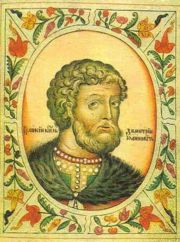


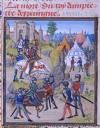
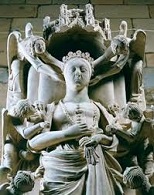
1360 In Jan. Edward III raises the siege of Reims and marches to Burgundy to pillage it, but is bought off with a ransom of 200K moutons to leave at the end of Mar.; Edward III pays Geoffrey Chaucer's Ł16 ransom in Mar.; in Apr. Edward III returns to the walls of Paris, challenging dauphin Charles to come out and fight; when he refuses, Edward begins to move towards Chartres, but on Apr. 13 (Easter) is caught by a terrific hailstorm on Black Mon., which kills many men and horses and causes him to sue for peace (3rd Black Easter Monday since 1209 and 1351); on May 8 the Peace (Treaty) of Bretigny (Calais), signed in the village of Bretigny 6 mi. SE of Chartres by Edward III, Philip I of Burgundy, and the dauphin brings the Hundred Years' War to a temporary halt; Philip II the Bold is released, and receives the duchy of Touraine; the SW third of France, incl. all of Aquitaine, Calais, and Ponthieu, plus the dinky Channel Islands; in return Edward III renounces his claims to the French throne as well as all claims to Anjou and Normandy, and his alliance with Flanders, while retaining Gascony and Guienne; France renounces its Auld Alliance with Scotland; the ransom is lowered to 3M ecus ($50M), and after the estate of Langue d'Oil grants it (for a term of 6 years) John II of France is released from captivity to raise the money for it in July; he marries off his daughter in order to get some quick money, which he turns over on Oct. 24, causing the treaty to be ratified in Calais; the Breton War of Succession (begun 1341) continues, and France is plagued by bands of unemployed marauding French and English mercenaries; the peace only lasts until 1369. The original Bates Motel? In late summer king (since May 28, 1357) Peter (Pedro) I the Cruel (1320-67) of Castile and Leon orders his highest dignitaries to kiss the hand of the corpse of his beloved Galician princess Ines de Castro (1325-55), who is seated on a throne in the city of Coimbra, and to do obeisance to her as the queen of Portugal - some people call me the space cowboy, some call me the gangster of love? Wealthy Spanish Jewish financier-diplomat Samuel ben Meir Abulafia (1320-61) is arrested and robbed, then killed next year by Castile-Leon king Peter I the Cruel sans explanation - I'm too cruel to be kind? Waldemar IV of Denmark reconquers Scandinavia; a boycott of Bruges by the Hanseatic League brings it to its knees; meanwhile England begins to penetrate into the Baltic, causing English resentment against the 1-sided privileges of the Hanseatic League in England. 9-y.-o. (St.) Dmitri II Donskoi (1350-89) becomes grand duke of Moscow (until 1389), with metropolitan Alexis (1295-1378) as regent; meanwhile the Mongol khan gives the higher title of grand prince of Vladimir to Dmitri Konstantinovich (1324-83) of Nizhny Novgorod (until 1363). The HRE grants Jews the right to resettle Frankfurt, and sells the right to half the taxes to the archbishop of Mainz, who sells them to the Frankfurt city council; an imperial representative is sent to the city to safeguard the Jews' rights, until the city purchases the office from the HRE for 6K marks in 1372; in 1366 HRE Charles IV prevents Jews from becoming guild masters, from setting their own laws or having their own courts. The E part of the failing Norse colony of Greenland is destroyed by the "Skraelingen" (Skraelings), nomadic hunters from the Far North (Eskimos); they eventually destroy the last group of Greenlanders in the W, burning them down in their church in Harjolfsnes; later a bunch of medieval clothing is found in tombs there, none dating past this cent. The Great Plague labor shortage causes English justices of the police, er, peace to be established as police judges in each county, with powers to regulate prices and wages. French chivalry lover Jean Froissart (1337-1410) begins a long series of travels beginning with Avignon this year, England next year (where Queen Philippa appoints him secy.), Scotland in 1365, then Brussels, France and Italy, followed by becoming a priest in 1372 in Lestines in the diocese of Liege, where he spends 12 years compiling Froissart's Chronicles, then resumes his travels in 1386 to expand it, finishing with the 1400 death of Richard II of England. Thomas Stewart, Earl of Angus orders the murder of David II's mistress Katherine Mortimer, causing the pissed-off king to imprison and starve him to death after attending her funeral at Newbattle Abbey near Edinburgh. The first francs are coined in France by order of John II, gold coins with the inscription "Johannes Dei Gracia Francorum Rex" (John by the Grace of God King of the Franks); they go out of circ. by the 2nd quarter of the 15th cent. Inventions: In this decade (early 1300s?) the Clavichord (Cembalo) (Lat. "clavis" + "chorda" = key + string) is developed, producing sounds by plucking a string when a key on the keyboard is depressed; it's not loud enough for large public performances. A mechanical clock is designed by Henri de Vick of Wurttemburg for future King Charles V of France. Science: About this time French Roman Catholic priest Jean Buridan (1295-1363) develops the Theory of impetus, which he defines as weight x velocity, becoming the precursor to the concepts of inertia, momentum, and acceleration. Births: Portuguese brainy queen consort (1387-1415) (Plantagenet) Philippa of Lancaster (d. 1415) on Mar. 31 in Leicester Castle; savant daughter of John of Gaunt (1340-99) and his wife-cousin Blanche of Lancaster (1345-69); granddaughter of Edward III of England (1312-77); wife of John I the Good (1357-1433); mother of the Illustrious Generation (6 sons and 3 daughters), incl. Blanche (1388-9), Afonso (1390-1410), Edward (Duarte) (1391-1438), Peter (1392-1449), Henry the Navigator (1394-1460), Isabella (1397-1472), Blanche (1398), John (1400-42), and Ferdinand the Saint Prince (1402-33). Ottoman sultan #4 (1389-1402) Beyazid (Bajazet) (Bayezid) I (Yildirim) (the Thunderbolt) (d. 1403); son of Murad I (1326-89) and Gulcicek Hatun (Greek); father of Suleyman (-1411), Musa Celebi (-1413), Muhammad I the Restorer (1389-1421), Isa, and Mustafa (-1401). Portuguese knight Vasco de Lobeira (d. 1403); author of the chivalry romance Amadis of Gaul? Byzantine emperor (1390, 1398-1412) John VII Palaeologus (d. 1412); grandson of John V Palaeologus. Bohemian Hussite Ultraquist gen. (blind) Jan Zizka (Johann Ziska) of Trocnov and the Chalice (d. 1424) in Trocnov. Italian Florentine Medici Dynasty and Medici banking house founder Giovanni di Bicci de' Medici (d. 1429) in Florence; son of Averardo de' Medici; father of Cosimo I de' Medici (1389-1464) - and they call Giovanni's son what? Italian humanist scholar-grammarian Gasparinus (Gasparino) de Bergamo (da Barzizza) (Di Pietrobuono) (d. 1431) in Barzizza (near Bergamo); educated in Pavia; teacher of Vittorino da Feltre (1378-1446), Leon Battista Alberti (1404-72), and Antonio Beccadelli (1394-1471). Deaths: English heiress Elizabeth de Clare (b. 1295) on Nov. 4 in Ware, Hertfordshire. Greek theologian-historian-astronomer (opponent of St. Gregory Palamas) Nicephoras Gregoras (b. 1295); declared heretical by a synod in 1351; his body is dragged through the streets of Constantinople to jeers; leaves Byzantine History (37 vols.), covering 1204-1357, devoting two books to his disagreement over Hesychasm with St. Gregory Palamas. English soldier Sir Roger Mortimer, 2nd earl of March (b. 1328) on Feb. 26 in Rouvray (near Avallon), Burgundy, France.
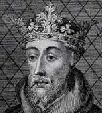

1361 The plague breaks out again in Europe and England (next time 1369). A UFO is sighted in the Sea of Japan off W Japan. On Nov. 21 15-y.-o. Philip I of Burgundy (Philippe de Rouvre) (b. 1346) dies of plague without an heir before he can consummate his marriage with new wife (since 1357) Margaret Dampierre (b. 1350), heiress of Flanders (which would have given him the counties of Flanders, Nevers, and Antwerp, plus the duchies of Brabant and Limburg); since the direct descendants of all four of his grandparents are also kaput, the duchy of Burgundy is escheated to the French crown (until 1363), since his great-grandfather John II is the grandson of Duke Robert II of Burgundy (1st cousin of Philip's father, which is one degree closer than Charles III of Navarre, son of a 1st cousin of Philip's father, who would have inherited via promogeniture otherwise); the counties of Burgundy and Arthois go to Marguerite of France (daughter of his great-grandmother Jeanne II of Burgundy); Auvergne and Boulogne go to his great-grandfather John of Boulogne (son of Count Robert VII of Boulogne), and never again are incorporated into the duchy of Burgundy, ultimately ending up in the hands of Catherine de' Medici; the rest of the duchy is reuinited in 1384. Denmark seizes the main Hanseatic League base of Wisby in Gotland (Gothland), cutting off the Russian-Baltic trade route and the monopoly on the herring trade, which pisses off the Hansa towns and their backer Sweden, causing the First Danish-Hansa War (ends 1363), with Copenhagen being sacked; the island of Oland (Öland) in the Baltic Sea off the SE coast of Sweden is taken from the Swedes by the Danes, but is taken back after a few years. Duke Henry of Lancaster dies, and John of Gaunt, hubby of his daughter Blanche becomes duke of Lancaster and one of the wealthiest nobles in plague-depopulated England; meanwhile after obtaining permission from Pope Innocent VI, John's brother Edward the Black Prince marries his cousin (daughter of his half-brother Edmund of Woodstock, earl of Kent) Countess Joan "the Fair Maid of Kent" (1328-85), whom he had been raised with, and after whom the Order of the Garter is named. The Turks capture Adrianople (Adrianopolis) from the Byzantines. Science: French alchemist Nicolas Flamel (1330-1418) discovers the alchemical textbook The Sacred Book of Abraham the Jew, Prince, Priest, Levite, Astrologer and Philosopher to that Tribe of Jews Who by the Wrath of God Were Dispersed Amongst the Gauls, spending 21 years trying in vain to understand it until a converted Jew in Leon gives him the key; on Jan. 17, 1382 he performs his first successful chemical transmutation in Paris, growing wealthy, allowing him to endow 14 hospitals, seven churches, and three chapels in Paris, and ditto in Boulogne, making him a hit with Sir Isaac Newton, who copies one of his works by hand - behind every fortune is a crime? Births: German House of Luxemburg (last) Hungarian-Croatian king (1387-1437), German king (1411-37), Bohemian king (1419-37), Italian king (1431-37), and HRE (1433-7) Wenceslaus (Wenceslas) (Wenzel) IV (the Drunkard) (the Lazy) of Luxembourg (d. 1419) on Feb. 14 in Nuremberg; son of HRE Charles IV (1316-78); brother of Sigismund I (1368-1437). Deaths: French composer-poet Philippe de Vitry (b. 1291) on June 9; "the great philosopher and truth-seeker of our age" (Petrarch). English noblewoman Jeanne de Bar (b. 1295) in London. German Dominican mystic John Tauler (b. 1300) on June 16 in Strasbourg. English soldier Henry of Grosmont, 1st duke of Lancaster (b. 1310) on Mar. 23 in Leicester Castle (plague); leaves Book of the Holy Doctors (Livre de Seyntz Medicines), a devotional work based on Henry's Seven Wounds, which represent the Seven Deadly Sins; reveals that he had gout by the age of 44. Spanish Jewish leader Samuel Abulafia (b. 1320).



1362 On Apr. 6 after John II of France attempts to deal with the brigand cos. plaguing France they defeat his force at the Battle of Brigands, er, Battle of Brignas near Lyon. In July the dauphin and the council disallow parts of the Treaty of Calais on the grounds that they give away too much; John II, feeling his honor is in dispute agrees to return to captivity in England, where he lives in luxury; meanwhile the S provinces of France chafe under their return to "foreign" English rule, showing signs of awakening nat. consciousness, after newlywed Edward the Black Prince is created prince of Aquitaine and Gascony by his father Edward III, and crosses the Channel to rule as a vassal of the French king, ruling ably but turning off the Gason nobles, who believe their feudal rights are being curtailed. In Sept. 7 Scottish queen Joan of the Tower (b. 1321) dies in London, causing her hubby David II to get serious with his mistress Margaret Drummond (Logie or Logy) (1340-75) from Perthshire, and they marry in Inchurdach, Fife on Feb. 20, 1364, only to divorce on Mar. 20, 1369 on grounds of infertility, which causes her to successfully appeal to the pope to reverse the sentence of divorce, claiming he is the infertile one. On Sept. 12 Pope (since 1352) Innocent VI (b. 1282) dies, and on Sept. 28 Guillaume de Grimoard (a Benedictine monk who continues to wear his habit as pope) is elected Pope (#199) Urban V (1310-70), going on to found or aid at least nine univs. On Sept. 23 the Civil War in Brittany breaks out again in Brittany between the de Monfort and de Penthievre parties (ends Apr. 12, 1365). The Danes under Waldemar IV defeat the German Hansa fleets at the Battle of Helsingborg. Swedish nobles revolt against King Magnus II, electing his son Hakon in his place; they reconcile, and share the crown. Joan I of Naples helps James IV of Majorca escape imprisonment in Majorca, and marries him next Sept. 26 at Castelnuovo, gaining him the title of duke of Calabria; too bad, after she produces no children he leaves her to war on his old foe Aragon, and is defeated and flees to Bordeau, waiting in the wings plotting to take back the Balearic Islands. The English Parliament passes a law making English the language of pleading and judgment in the courts, with legal French retained in documents. Giovanni Boccaccio (d. 1375) revisits Naples, is snubbed by Queen Joanne, and, finding himself unable to recapture his lost youth (erectile dysfunction?) visits much-older Petrarch in Venice, turns down his offer of a home, and returns to his birth town of Certaldo to spend his last 13 years in religious meditation - you have a full head of hair, why a comb-over? The (spurious?) 202-lb. greywacke Kensington Rune Stone (Runestone) in the Red River Valley of Minn. records a Scandinavian voyage there this year, along with the massacre of the Scandinvian explorers by Skraelings (Indians); discovered in 1898 in Solem, Douglas County, Minn. by Swedish immigrant Olof Ohman. Architecture: The Papal Palace (Palais des Papes) in Avignon, France (begun 1334) is completed, its immense size allowing the Church bureaucracy (Curia) to balloon. Poetry: William Langland (1330-87), The Vision of William Concerning Piers the Plowman (William's Vision of Piers the Plowman); Middle English allegorical narrative poem in unrhymed alliterative verse, becoming the greatest medieval poem prior to Chaucer; contains the first lit. ref. to Robin Hood; the first appeal in Europe on behalf of poor peasants, complaining about govt. and ecclesiastical corruption, landlords, and lawyers; "I saw the friars there too, all four orders of them, preaching to the people for what they could get. In their greed for fine clothes they interpreted the Scriptures to suit themselves and their patrons"; "Then I hear parish priests complaining to the bishop that since the Plague their parishes were too poor to live in; so they asked permission to live in London, where they could traffic in Masses, and chime their voices to the sweet jingling of silver"; "Were I king, no wrong should go unpunished or get grace by bribes. Were this rule kept, Law would have to become a labourer, and Love should rule us all." Births: English advisor (of Richard II) Robert de Vere, Duke of Ireland, Marquess of Dublin, 9th Earl of Oxford (d. 1392) on Jan. 16; only son of Thomas de Vere, 8th earl of Oxford and Maud de Ufford; descendant of Aubrey de Ver, who lived in Normany in 1086 in Ver 18km S of Coutances. Scottish nobleman Murdoch Stewart, Duke of Albany (d. 1425); son of Robert Stewart, duke of Albany (1340-1420) and Margaret Graham, countess of Menteith (1334-80); grandson of Robert II; has eight sisters. Russian #1 Orthodox icon painter (St.) Andrei Rublev (d. 1430) (b. 1360-70?). Deaths: French pope (1352-62) Innocent V (b. 1282) on Sept. 12 in Avignon. Scottish queen consort (1329-62) Joan of the Tower (b. 1321) on Sept. 7 in Hertford Castle, Hertfordshire. Ottoman sultan #2 (1327-59) Orhan I (b. 1327) in Mar. in Bursa; dies of grief after his son and heir Suleyman Pasha dies from a horse fall near Bolayir in 1357.

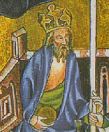
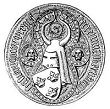



1363 In the spring a revolt against David II of Scotland, led by Robert Stewart and his sons along with the earl of March and earl of Douglas is quashed, and they renew their fealty on May 14; David then marries Margaret Logie, and tries to sell his English successor idea to the Scottish parliament again. In July the Truce of Evran ends the civil war in Brittany with an agreement to split it in half; too bad, nobody wants just half? John II of France gives the duchy of Burgundy to his 4th son Philip II the Bold (le Hardi) (1342-1402) as an appanage (for his support) (until 1402); Burgundian domination of the Netherlands and annexation of extensive areas in the Low Countries, along with Flanders, Artois, and Franche-Comte begins to corrupt the Dutch language with French, and eventually threatens the monarchy (until 1477). Waldemar IV of Denmark forces the Hansa towns to accept a peace which greatly curtails their privileges, ending the First Danish-Hansa War (begun 1361). Archduke Rudolf IV of Austria enters into an inheritance contract with the "Ugly Duchess" Countess Margarete Maultasch (Bag Mouth) (1318-69) of the Tyrol (Tirol), which brings it under Austrian Hapsburg rule after her death. Dmitri Konstantinovich is deposed, and Dmitri Donskoi is crowned as prince of Vladimir (until 1389), marrying Konstantinovich's daughter Eudoxia in 1366. Scandinavia begins to congeal like Jell-O? The Swedish nobles revolt again, are banished, and offer the Swedish crown to duke Albert (Albrecht) of Mecklenburg (1338-1412), son of King Magnus II's sister Euphemia, and with help from the German Hanseatic cities they conquer Stockholm and throw Magnus in prison; next Feb. 18 Albert is crowned king Albrecht I of Sweden (until 1389), becoming the first king crowned with the Swedish Three-Crown Seal, becoming a tool of the nobles; meanwhile Magnus' son Haakon VI of Norway marries Margreta (Margaret) I of Denmark (1353-1412), daughter of Waldemar IV. Constantin III dies, and his cousin Constantine (Gosdantin) IV (-1373) becomes Lusignan king #3 of Lesser (and lesser?) Armenia (Cilicia) (until 1373), going on to offer Peter I of Cyprus (d. 1369) the port and castle of Corycus in exchange for an alliance against the pesky Muslims. The Ottomans begin conquering S Bulgaria and Thrace (ends 1366). Golconda in S India revolts from Warangal, seceding next year. Callistos dies, and with the influence of Hesychast ex-emperor John VI Cantacuzene, Philotheus (Philotheos) Kokkinos ("the redhead") (1300-78) regains the patriarchate of Constantinople (until 1376) (1st time in 1353-4), sending Bulgarian Hesychast monk Cyprian (1336-1406) to Russia as his ambassador in 1373, with a master plan of uniting all Slavic lands under the mysticism-loving Hesychast brand of Greek Orthodoxy that hates Aristotelian rationalist Roman Catholicism. The city of Bolzano (Bozen) in Italy becomes a possession of the Hapsburg family (until 1918). The Great Days of Cracow see the founding of Cracow U. by Kasimir III. English becomes the official language of England - an or the? Tamerlane begins the conquest of Asia. France establishes a hearth tax - which is heartily despised? Munich, Germany creates a 12-man city council to oversee beer production, becoming so picky that by 1372 there are only 21 brewers left in town, causing them to sell beer sans aging to keep up with the demand; in 1420 the city decrees that all beer must be aged for at least eight days; in 1450 there are still only 30 brewers in town, and Bavarian Duke Stephan II asks people to brew more beer at home. Nonfiction: Guy de Chauliac (1300-68), Inventarium Sive Chirurgia Magna (The Great Surgery); surgery manual. Births: English Roman Catholic archbishop of Canterbury (1414-) Henry Chicheley (Chichele) (Checheley) (d. 1443) in Higham Ferrers, Northamptonshire; educated at Winchester College, and New College, Oxford U.; founder of All Souls College, Oxford U. Deaths: French philosopher John Buridan (b. 1292) (plague?).
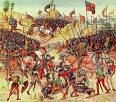


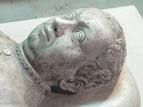


1364 In Jan. after a hostage flees, good fellow John II the Good of France (b. 1319) returns to welcome and luxurious captivity in England, where he falls ill in Mar. and dies in Apr.; on May 19 his unhunky son (by wife Bona of Bohemia) Charles V the Wise (1338-80) of France is crowned Valois king #3 of France (until 1380), becoming a modern type of statesman who makes France's future depend on the monarchy rather than the Estates-Gen., and begins a gen. reform and reconstruction of the kingdom, reforming and beefing up the military; a cool Coronation Book of Charles V of France is pub. next year under his direct supervision; he suffers from an abscess in his left arm that doctors tell him will kill him within 15 days if it ever dries up, ramping up his taxi meter?; he soon establishes the Marmousets (men of humble birth) as his royal ministers, helping to stabilize his admin. On Mar. 4 the Scottish parliament in Scone refuses to recognize a son of Edward III as heir to the Scottish crown. On May 16 Bertrand du Guesclin (1320-80) of Brittany, the first great French soldier in the Hundred Years' War defeats Charles II the Bad of Navarre at the Battle of Cocherel, driving him from his Norman lands and ending his threat to Paris; after being made lt. of Normandy and count of Longueville, on Sept. 29 (Michaelmas) Guesclin is taken POW at the Battle of Auray, and later ransomed; Charles de Blois is killed, ending the Breton War of Succession (begun 1341), with Duke John de Montfort, backed by English forces under Sir John Chandos (-1370) (founding member of the Order of the Garter, and close buddy of Edward the Black Prince) winning a decisive V; meanwhile on Sept. 16 Duke John IV of Monfort (b. 1295) dies before the big V, and his son Duke John V succeeds - John the Duke? A pact mutual inheritance between the Hapsburg and the Luxembourg dynasties is signed at Brno in Moravia by HRE Charles IV and his son-in-law Duke Rudolf IV the Founder of Austria. Crete revolts against Venetian rule. "Black Archibald Douglas is appointed Warden of the Western March; too bad, Annandale, the greater part of it is in English hands, and it takes him until 1383 to drive them out. Ava (Innwa) (Ratanapura) ("city of gems")near Mandalay in Burma is founded by king Thadominbya as the new capital (until 1841) by digging a canal between the Ayeyarwady and Mytinge Rivers. The Aztecs begin bldg. their capital Tenochtitlan. Thomas DuBuisson is paid to paint vermillion crosses all over the Louvre (home to French royalty) so that it would become a sacrilege to go number one or two there? Architecture: The Convent of the Intercession is founded in Moscow on the banks of the Kamenka River. Inventions: The first recorded use of a hand gun ("hand cannon") in Europe; by 1378 they are spreading across Europe. Music: Guillaume de Machaut (1300-77), Mass for Four Voices; for the coronation of Charles V at Rheims. Nonfiction: Nicole Oresme (1320-82), Le Livre du Ciel et du Monde (The Book of Heaven and Earth); questions the theory of a stationary Earth, suggesting that it revolves, and proposes Galileo's law of falling bodies; too bad, until Euro militaries become dependent on cannon in the 16th cent. and need scientists to figure out cannonball trajectories, science is only a hobby for univ. profs., who make their livings with theology and dialectic, and mathematics is still too primitive to get very far - the wizards are still mired in alchemy, and the geniuses are too busy reaping commissions from the Church and aristocracy for art works? Births: English hotshot Sir Henry Percy (Harry Hotspur) (d. 1403) on May 20; eldest son of Henry Percy, 1st earl of Northumberland (1341-1408). Italian feminist writer Christine de Pizan (Pisan) (d. 1434) on Sept. 11 in Venice; first prof. woman writer in Europe. English warden of the Scottish border and earl marshal Ralph Neville, 4th Baron Neville de Raby, 1st Earl of Westmoreland (d. 1425) in Raby Castle, Durham; son of John de Neville, 3rd Baron Neville (-1388); husband of Joan Beaufort, half-sister of Henry IV and daughter of John of Gaunt; father of Cicely Neville (1415-95), mother of Edward IV and Richard III; grandfather of Charles Neville, 6th Earl of Westmoreland (1543-1601); created earl in 1397. Italian humanist Niccolo Niccoli (d. 1437); pupil of Manuel Chrysoloras (1350-1415). Islamic Sunni Mamluk religious scholar Ahmad al-Maqrizi (al-Makrizi) (d. 1442) in Cairo. Deaths: English chronicler Ranulf Higdon (b. 1280) in the monastery of St. Werburgh, Chester; leaves Polychronicon (7 vols.), a universal history in Latin to the year 1357 C.E., containing a World Map; it is tr. into English in 1387 by John of Trevisa, and printed by William Caxton in 1480. Scottish king Edward Balliol (b. 1284) in Jan. in Yorkshire, England. Japanese Ashikaga pretender emperor #1 (1331-3) Kogon (b. 1313) on Aug. 5. French Valois king (1350-64) John II the Good Fellow (b. 1319) in Apr. in England.
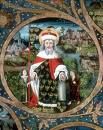

1365 On Mar. 3 the Battle of Gataskogen sees Albert of Mecklenburg defeat and capture recently-elected Swedish king Magnus Eriksson, becoming king of Sweden (until 1389). On Apr. 12 (Easter) the Treaty of Guerande (Guérande) ends the Breton War of Succession (begun 1341); Charles V recognizes John (Yann) (Jean) IV/V (the Conqueror) de Montfort (1339-99) as duke of Brittany, foiling the English, who wanted him to pay homage to Edward III. On June 2 the Hungarians under Louis I occupy Vidin in NW Bulgaria, capturing it and imprisoning Ivan Sratsimir of Bulgaria, renaming it the Banate of Bulgaria (until 1369). On June 4 HRE Charles IV is crowned king of Burgundy, making him the personal ruler of all kingdoms in the HRE. In June Charles V of France and Pope Urban V call for a Crusade in Hungary, to be led by French mercenary soldier (monk turned renegade?) Sir Arnaut de Cervole l'Archipretre (the Archpriest) (1300-66), leader of a brigand co. in France, the idea being to rid France of all of these "late-comers" (tard-venus) left over after the treaty was signed; as they try to leave France, however, the citizens of Jew-friendly Strasbourg refuse to let them cross the Rhine bridge, and they end up returning to France, after which Cervole is killed next year by his own lts. after pillaging Champagne and Lorraine. On July 27 Rudolf IV the Founder (b. 1339) dies, and his younger brother Leopold III (1351-86), son of Albert II (d. 1358) becomes Hapsburg duke of Austria (until 1379), as well as duke of Carinthia and Styria (until July 9, 1386), becoming the first admin. of Tyrol (Tirol) in 1369. In Oct. the Alexandrian (King Peter's) Crusade sees the Knights of St. John under Peter I of Cyprus lead 400 ships which sack Alexandria in Egypt for two days, after which the Mamluks try to block the harbor with rubble and ban Venetian traders, forcing them to search for new trading routes; the news causes Muslims to arrest the whole Franciscan community in Jerusalem and close the Holy Sepulchre, causing the Franciscans to resort to suicide attacks. On Nov. 22 the Peace of Vordingborg (Wordingborg) between Denmark and the Hansa towns deprives them of many of their privileges in Denmark. The Ottomans under Murad I (1326-89) siege Adrianople (Adrianopolis) (Edirne) in Thrace 130 mi. NW of Constantinople, and after taking it in 1369 make it their capital (until 1453), using it as a base to attack Serbia and Bulgaria, with Murad I assuming the title of sultan (until June 15, 1389) - yo, Adrian, next capital Constantinople? The U. of Vienna, the oldest univ. in the German-speaking world is founded on Mar. 12 by Austrian Hapsburg Duke Rudolf IV (1339-65) in another effort to keep up with Charles U. in Prague (1347). Giovanni Boccaccio is sent on a 2nd mission to the papal court in Avignon (first in 1354). A revolt against the Venetian rulers of Crete fails. Bahmani Sultan Mohammed Shah I invades the Vijayanagara Empire. The Sukhothai Kingdom in N Thailand becomes a tributary of the Ayutthaya Kingdom (founded 1350). Singhapura (Sans. "lion city") (modern-day Singapore) (once home of many lions) off the S tip of the Malay Peninsula (95 mi. from the equator) is destroyed (refounded in 1819). Inventions: The martial art of Kun Tao is developed in Mindanao. Sports: On June 12 Edward III bans soccer playing in London, ordering archery practice instead. Architecture: Schweppenburg Castle is built, becoming a modern-day tourist site on the Vulkan Express. Deaths: Bavarian duke (1347-65) and Brandenburg margrave (1351-65) Louis VI the Roman (b. 1328) on May 17 in Berlin. Austrian duke (1358-65) Rudolf IV the Founder (b. 1339) on July 27 in Milan.
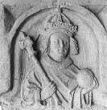

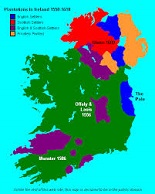
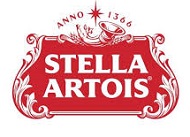
1366 A promising Millennium Fever year (1-3-6-6) causes French ascetic Jean de Roquetaillade (-1362) of Avignon to predict the coming of the Antichrist this year. Early in the year Edward the Black Prince leaves Spain, Henry Trastamara returns, and fights the civil war; John of Gaunt, duke of Lancaster (patron of poet Geoffrey Chaucer) aids his ailing brother the Black Prince, although he lacks his military skill; Bertrand du Guesclin "charmingly extorts" 200K francs from the pope to finance a Grand (Catalan) Co., and a 30K-man brigand expedition is sent to Spain to aid illegitimate son of Alfonso XI, Jew-killer Count Don Henry (Enrique) de Trastamara (Trastámara) (1334-79) in his claim for the throne of Castile and Leon. The Ottomans lose Mel Gibson, er, Gallipoli (until 1376), but capture Thrace, and make Adrianopole their main base for European conquest, shrinking the Byzantine dominions. 18-y.-o. bimbo Alice Perrers (1348-1400) becomes Edward III's royal mistress, becoming very influential with the old fool; by 1369 Edward III falls into his dotage and begins to lose interest in official business, falling under the sway of his mistress and his unscrupulous barons and advisers as the French war goes bad? - it wasn't me, it was a French judge? The original Wanted Posters for Kennedy? After the Anglo-Norman settlers in Ireland become too Irish for the English to swallow, the 36 Statutes of Kilkenny protect the racial purity of the English in Ireland, forbidding intermarriage and requiring the Irish to speak English, decreeing excommunication and heavy penalties for following the customs of or allying themselves with the native Irish, and denying the Irish access to church offices (bishoprics), banning Irish minstrels; nobody is allowed to ride a horse except "on a saddle in the English fashion", causing Irish rebels to love riding bareback; the statute is widely ignored, nativist rulers started gaining ground amid a Gaelic cultural revival, and by the time of the War of the Roses (1450) the authority of the English crown shrinks to the English Pale, a small coastal district of four counties around Dublin and the port of Drogheda incl. Dalkey, Dundalk, Naas, Leixlip, Trim, and Kells enclosed by an earthen rampart, causing the phrase "beyond the Pale" to be coined; the Kilkenny Cat allegedly will fight until only its tail is left. The 1K marks of annual tribute promised by King John I to the pope is 30 years in arrears, and when Edward III consults Parliament, the latter replies that they had never consented to it, so the payment is permanently ceased. Pope Urban V sends legates to Paris to announce that all candidates for an arts degree at the U. of Paris have to thoroughly study Aristotle. Blanche d'Evreux (Navarre), Countess of Gisors (1332-98) (queen consort of Philip VI) succeeds Jean de Saint-Clair as grandmaster of the Priory of Sion (until 1398) :). Germans are excluded from the privileges of the Hanseatic League, whose four main kontors (trading stations) are at Wisby (Gothland), Bergen, London, and Bruges. The Den Hoorn Brewery is founded in Leuven, Belgium; in 1717 head brewer Sebastien Artois purchases it and changes the name to Artois Brewery; in 1926 it introduces Stella Artois, named after the Christmas star, with a horn logo, exporting to the Euro market in 1930; in 1988 it becomes part of Interbrew. Sports: The first mention is made of bowling in England. Architecture: Meier Abdeli and Shmuel (Samuel) ben Meir build the El Transito Synagogue in Toledo, Spain. Births: Dutch (Flemish) painter Hubert (Huybrecht) van Eyck (d. 1426); older brother of Jan van Eyck (1390-1441). Deaths: English gen. Ralph de Neville, 2nd Baron Neville (b. 1291). Italian painter-architect Taddeo Gaddi (b. 1300).

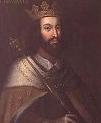

1367 It's better to burn out than rust? On Jan. 18 Pedro I (b. 1320) dies, and his 2nd oldest son Ferdinand (Fernando) I (the Handsome) (the Inconstant) (1345-83) becomes king #9 of Portugal (until 1383). In Feb. after poor little deposed cruel boy Peter I the Cruel of Castile seeks help from the English, Edward III of England, after some debate ignores the Peace of Calais and sends his son Edward the Black Prince (gov. of Aquitaine) with an army, along with a div. of the English army under his brother John of Gaunt; in Apr. Henry II Trastamara and his Spanish and French troops are defeated at the Battle of Najara (Nájara) (Navarette) near the Ebro River; Peter I the Cruel is restored as king, although the English forces suffer heavy losses, and the Black Prince contracts an illness in Valladolid from which he never recovers; James IV of Majorca, who invaded Castile with him in hopes of getting help regaining Majorca also gets sick, and is captured by Henry II, but is ransomed by his wife Joan I of Naples; after Pedro the You Know What reneges on reimbursing him for expenses, the Black Prince is forced to levy heavy taxes for the war, causing the people of Aquitaine to grumble, and the disgruntled nobles to eventually protest to Charles V, who is busy destroying the remaining brigand cos. On Apr. 18 (Easter). In May Pope Urban V sails from Marseille to Rome, taking the Avignon papacy with him, ending the Babylonian Captivity (begun 1309); Giovanni Boccaccio visits Rome in order to congratulate him; too bad, he returns to Avignon in 1370, and it's back on (until 1377). The prince of Moldavia conquers and annexes the fertile wedge-shaped region of Bessarabia between the Prut and Dniester Rivers extending NW 300 mi. from the Black Sea. The Bahmani defeat the huge but weak armies of Vijayanagar using artillery manned by Europeans and Ottoman Turks, then massacre 400K in the Deccan. The Confederation of Cologne is formed by 77 German towns to fight Denmark; meanwhile Scandinavian alliances are made against Denmark. David II of Scotland, finally recognizing him as a potential heir arranges the marriage of John Stewart (the future Robert III) to Annabella Drummond (1350-1401), niece of his 2nd wife Margaret, causing his daddy Robert Stewart (later Robert II) to give him the good ole Gaelic earldom of Atholl in May, followed by the old Bruce earldom of Carrick next June from the king; too bad, she bears two daughters but no sons, causing her hubby's rival and brother Robert Stewart, duke of Albany to back the Salic law barring women from inheriting the throne; in 1390 she is crowned in Scone with Robert III, and finally has a son, James I in 1394. The Chinese discover the 49 sq. mi. 64-islet Pescadores (Port. "fishermen's islands") in the Taiwan Strait 30 mi. from Taiwan; the Portuguese discover them in the 16th cent. The king of Navarre hires a Moor to teach them about cannon and artillery. Geoffrey Chaucer is given a life pension for being a valet of the king's household. Czech archdeacon Militz of Kromeriz proclaims that the Antichrist will come this year and bring the End of Days. Charles V of France founds the first royal library. The League of God's House (Gotteshausbund) in Engadine, Switzerland N of the Valtellina is formed. Jam Tamachi (Jam Khairuddin Al-Maroof Jam Tamachi bin Jam Unar (-1379) becomes sultan of Sindh in modern-day SE Pakistan (until 1379), founding the Makli Necropolis near Thatta for Sufi saint Shaikh Jamali, becoming the main funerary site for the Samma Dynasty with capital near Thatta, and filled with big tombs by the Mughals in 1570-1640; it eventually houses 500K-1M tombs. Architecture: Dmitri II Donskoi builds the first stone Kremlin (fort) in Moscow, after which all other city developments encircle it in concentric rings. The Great Mosque of Gulbarga (founded 1358) in India is roofed with domes. Births: Two grandsons of Edward III are born, and one does in the other? English king (1399-1413) Henry IV of Bolingbroke (d. 1413); eldest son of John of Gaunt and Blanche of Lancaster; grandson of Edward III; founder of the Lancastrian (red rose) Dynasty, which dukes it out with the York (white rose) Dynasty. English king (1377-99) (last Plantagenet king) Richard II Plantagenet (d. 1400) in Bordeaux, Acquitaine; son of Edward the Black Prince (1330-76) (brother of John of Gaunt) and Joan, the Fair Maid of Kent; grandson of Edward III. Queen consort of Naples (1406-14) Mary of Enghien (d. 1446); sister of Peter of Enghien (Pierre d'Enghien), count of Lecce (-1384); grandmother of Isabella of Clermont/Taranto (1424-65). Deaths: Egyptian Muslim scholar Ahmad ibn Naqib al-Misri (b. 1302) in Cairo; leaves Umdat al-Salik wa Uddat al-Nasik (Arab. "Reliance of the Traveller and Tools of the Worshiper), a manual of Shafi'i Sunni jurisprudence, which is trans. into English in 1991, becoming the first std. Islamic legal ref. work translated into a Euro language. Italian sculptor Nino Pisano (b. 1315). Portuguese king (1357-67) Pedro I (b. 1320) on Jan. 18 in Estremoz.

1368 A revolt against high taxes causes Waldemar IV of Denmark to flee (unti 1370); meanwhile in Aug. 1361 the Second Danish-Hanseatic War begins (ends May 1370), with the Hansa towns supported by Sweden, Norway, Holstein, Mecklenburg, and even some Danish nobles. Tamerlane (Timur) ascends the throne of Samarkand (until 1405). The Lithuanians under grand duke (since 1345) Olgerd (Algirdas) (-1377) siege Moscow, but are thrown back by grand duke (since 1360) Dmitri II. The Black Death was actually good for Chinese? Chinese peasant (former Buddhist monk) Zhu Yuanzhang (Yuan Zhang) (Chu Yuan-chang) (1328-98) leads Chinese rebels from S China to capture Guangzhou, causing Mongol ruler (since Dec. 19, 1332) Toghan Temur to flee to Kai Ping (Karakorum); the Yuan Dynasty (founded 1271) ends, and the Ming (Chin. "luminous") Dynasty (ends 1644), vased, er, based in the new city of Nanjing (Nanking) (Chin. "southern capital") begins (ends 1644), becoming the first reunion of China by the S (next time is the Communists in 1948); on Jan. 23 Zhu Yuan Zhang takes the title Ming Taizu (Tai Tzu) (T'ai Tsu) (1328-98) of the Hong (Hung) Wu (Chin. "vast military") becomes Ming emperor of China #1 (until June 24, 1398), with the motto: "Exiling the Mongols and restoring the Han", going on to end the Confucian view of the military as inferior to scholars; in Sept. the Mongols flee their capital of Khanbaliq (modern-day Beijing) along with the rest of N China and retreat to Mongolia; Ming Taizu promulgates the new Ta (Da) Ming Lu (Chin. "Immutable Laws") law code (completed in 1397), and restore the Great Wall of China, along with a gen. policy of isolation, while the introduction of Western foodstuffs such as wheat and yams causes a 50% pop. increase during his 30-year reign; too bad, he doesn't like merchants, and introduces paper currency, running the presses until he creates inflation. After they get ridiculously impractical, Charles V bans the manufacturing of pointy shoes (Cracows) in Paris. David II tries to get his marriage to childless Margaret of Logie annulled, and takes new mistress (known for her heroic defense of Dunbar Castle in 1338) Agnes Randolph, Countess of Dunbar and March, 4th Countess of Moray (1312-69) (AKA Alice Dunbar and Black Agnes because of her olive complexion), daughter of Thomas Randolph, 1st earl of Moray (-1332), and sister of George, earl of March and John, lord of Fife, whose marriage would bring the support of valuable allies such as Robert Erskine, "Black" Archibald Douglas of Galloway, James Douglas of Dalkeith, and Walter Leslie; too bad, Margaret blocks the annulment and gets financial backing from England and writes the pope to issue an interdict on Scotland; meanwhile David has Robert Stewart and his sons John and Alexander briefly imprisoned to intimidate him into slowing down his acquisition of lands. Poetry: Petrarch (1304-74), Il Canzoniere (The Songs); 366 total, incl. 317 sonnets. Births: Burmese Hanthawaddy king #9 (1384-1421) Razadarit (Burmese "king of kings") (d. 1421) on Jan. 28 in Donwun (near Martaban). Hungarian king (1387-1437), German king (1411-37), Bohemian king (1419-37), and HRE (1433-7) Sigismund of Luxembourg (Brandenburg) (d. 1437) on Feb. 14 in Nuremberg; son of HRE Charles IV (1316-78) and 4th wife Elizabeth of Pomerania (1347-93); brother of Wenceslaus IV (1361-1419); husband (1385-) of Queen Mary of Hungary (1371-95). French Valois king (1380-1422) Charles VI (the Well-Beloved) (the Mad) (d. 1422) on Dec. 3 in Paris; son of Charles V (1318-80) and Jeanne of Bourbon; father of Charles VII by wife (1385-) Isabeau (Isabelle) of Bavaria (1370-1435); goes mad in 1392. Italian condottiero Braccio da Montone (Andrea Fortebracci) (d. 1424) (AKA Braccio Fortebraccio) on July 1 in Montone (25 mi. N of Perugia). Deaths: French surgeon Guy de Chauliac (b. 1300).




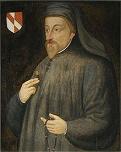
1369 A database of 250K English soldiers who fought in the Hundred Years War from this year to 1453 is released in July 2009. Another plague outbreak occurs in Europe (next 1374). On Mar. 14 king (since Mar. 26, 1350) Peter I the Cruel (b. 1334) is cruelly?) defeated again by Henry Trastamara at the Battle of (Campo de) Montiel near Toledo, and KIA in personal combat with Henry Trstamara, who again becomes Henry II of Castile and Leon, founding the Trastamara (Trastámara) Dynasty, which later incl. Ferdinand II and Isabella I of Christopher Columbus fame. In Apr. Charles V launches an effort to revive the French fleet; in May after the count of Armagnac appeals to him against the Black Prince and the latter refuses to appear at his court, Charles declares the Treaty of Bretigny void, then resumes the war with England, causing a revolt to spread through Aquitaine and Gascony; in June King Henry II of Castile and Leon concludes a naval treaty with France; John of Gaunt lands at Calais on July 26. On Nov. 3 the old Assizes of Jerusalem (1099) are revised by 16 commissioners on the island of Cyprus for their use and deposited in the Cathedral of Nicosia sealed with four seals. With coaching from elder statesman Demetrius Cydones (1324-98), Byzantine emperor John V professes the Roman Catholic faith in Rome in a vain effort to obtain papal support against the Ottomans, with the soundbyte: "Even the Turks ask with laughter if anyone has word of the expedition." Venice repels a Hungarian invasion. Amsterdam joins the Hanseatic League. The Mongols force the Yuan Dynasty to flee to He Lin (Karakorum). Charles V the Wise of France negotiates the marriage of John II's son Duke Philip to Margaret III of Dampierre, Countess of Flanders (1350-1405), daughter and heiress of Louis II de Male (1330-84), the last count of Flanders (1346-84) in an effort to keep Flanders out of English hands. Charles V the Wise of France tricks the Estates General into agreeing to make old grants of funds perpetual unless their terms are to be changed, freeing him from their control unless new taxes are needed, and transferring the financial control they grabbed in 1357 to his royal chambre de comptes in Paris. Architecture: The Bastille (Bastille Saint-Antoine) prison at No. 232, Rue Saint-Antoine in Paris is built. Nonfiction: Muhammad Ibn Battutah (1304-77), Rihlah (Travels); covers his jaunts from Tangier through N, E, and Saharan Africa, Spain, Arabia, Yemen, Syria, Iraq, Iran, the Persian Gulf, Anatolia (Asia Minor), the Caucasus, S Russia, India, Maldives, and China. Poetry: Geoffrey Chaucer (1343-1400), The Book of the Duchesse (The Deth of Blaunche) (1368-72?); dedicated to the memory of John the Gaunt's 1st wife Blanche of Lancaster (b. 1345), who dies this year. Births: Italian condottiero (founder of the Sforza Dynasty) Giacomuzzo (Muzio) Attendolo Sforza (d. 1424) on May 28 in Cotignola (Romagna); father of Francesco I Sforza (1401-66) and Alessandro Sforza (1409-73). Czech Hussite Christian reformer Jan Hus (John Huss/Huss) (d. 1415) in Husinetz (Husinec), near Budweis (Prague). Italian humanist historian ("the first modern historian") Leonardo Bruni (d. 1444) in Arezzo, Tuscany; becomes citizen of Florence in 1416; coiner of the term "studia Humanitatis", from whence the word humanist was derived. Deaths: Italian painter Vitale da Balogna (b. 1289) in Udine. English queen (1328-69) Philippa of Hainault (b. 1311) on Aug. 15 in Windsor. Scottish heroine Black Agnes, countess of Dunbar and March (b. 1312). English knight Sir Michael de Poynings, 2nd baron Poynings (b. 1317) on Mar. 15 in Poynings, Sussex. Greek theologian Prochoros Kydones (b. 1330). Spanish Castilian king (1350-69) Peter I the Cruel (b. 1334) on Mar. 14. English noblewoman Blanche of Lancaster (b. 1345) on Sept. 12 in Bolingbroke Castle.